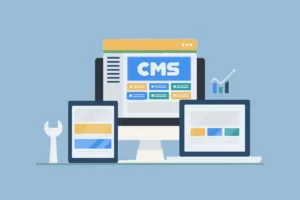You’ve mastered the ins and outs of WordPress development, perhaps after reading our guide on How to Become a WordPress Developer. Now, what’s the next exciting step? For many, it’s embracing the world of WordPress freelancing. This path offers the ultimate freedom to build websites, set your own hours, and truly shape your career.
Becoming a WordPress freelancer isn’t just about building websites; it’s about building your own business, setting your own hours, and choosing the projects you’re passionate about. It’s about finding that sweet spot between your technical skills and your entrepreneurial spirit.
Why Choose the Freelance Path?
The allure of freelancing is strong, especially for a skill as in-demand as WordPress development. Here are some compelling reasons to consider this journey:
- Autonomy and Flexibility: You’re your own boss. You set your schedule, choose your clients, and work from anywhere with an internet connection. This freedom is perhaps the biggest draw for many.
- Diverse Projects: As a freelancer, you’ll encounter a wide variety of projects, from simple business websites to complex e-commerce platforms. This keeps things interesting and continuously expands your skill set.
- Direct Impact: You work closely with clients, seeing the direct impact of your work on their businesses. This personal connection can be incredibly rewarding.
- Unlimited Earning Potential: Your income is directly tied to your effort and skill. The more clients you serve and the more value you provide, the greater your earning potential.
Essential Steps to Becoming a Successful WordPress Freelancer
Transitioning from developer to successful freelancer involves more than just technical prowess. It requires a strategic approach.
- Solidify Your Core Skills Before you even think about clients, ensure your WordPress development skills are sharp. This includes:
- Core WordPress Expertise: Deep understanding of WordPress architecture, themes, plugins, and the block editor (Gutenberg).
- Coding Skills: HTML, CSS, JavaScript, and PHP are non-negotiable.
- Database Knowledge: Working with MySQL for WordPress databases.
- Performance Optimization: Knowing how to make sites fast. (You can explore essential tools in our article: Developer’s Edge: 5 Must-Have WordPress Plugins for Killer Sites).
- Security Best Practices: Protecting client sites from vulnerabilities.
- Build an Impressive Portfolio This is your primary marketing tool. Clients want to see what you can do.
- Showcase Your Best Work: Include a variety of projects that highlight your skills. If you’re just starting, create mock projects or volunteer for non-profits.
- Detail Your Role: For each project, explain your specific contributions and the problem you solved for the client.
- Include Testimonials: Social proof is powerful. Ask satisfied clients for testimonials to feature alongside your work.
- Define Your Niche and Services Don’t try to be everything to everyone. Specializing makes you more appealing to specific clients and allows you to command higher rates.
- Examples: Are you the go-to person for e-commerce sites, membership platforms, local business websites, or perhaps performance optimization?
- Clearly Outline Services: List exactly what you offer (e.g., custom theme development, plugin customization, site maintenance, SEO setup).
- Set Your Pricing Model This can be tricky. Research industry rates, consider your experience, and decide on a pricing structure.
- Hourly Rates: Simple, but clients might worry about hours racking up.
- Project-Based Fees: Provides clarity for clients and incentives for you to work efficiently.
- Retainers: Ideal for ongoing maintenance or support services, providing stable income.
- Master Client Communication and Management Technical skills get you the job, but communication skills keep the client happy and coming back.
- Clear Proposals: Outline scope, deliverables, timelines, and costs transparently.
- Regular Updates: Keep clients informed about project progress.
- Feedback Loops: Establish clear processes for client reviews and revisions.
- Professional Contracts: Protect both you and your client.
- Market Yourself Effectively This is where your inner marketer shines.
- Your Own Website: Your agency’s website is your biggest marketing asset. Make sure it’s fast, well-designed, and optimized for search engines. (Speaking of SEO, make sure you know your basics with our guide: Mastering SEO for Beginners Your WordPress Website’s Path to Google’s Top Spot).
- Social Media: Actively share your work, insights, and engage with your target audience on platforms like LinkedIn, Instagram, or Facebook.
- Networking: Attend industry events, join online communities, and connect with other professionals.
- Client Referrals: Satisfied clients are your best advocates. Encourage them to spread the word.
Your Foundation The Right Hosting
A strong WordPress website always starts with reliable hosting. For optimal performance and value, we recommend Hostinger. Their robust infrastructure provides a solid foundation for any WordPress project you’ll be working on.
Ready to take the leap and secure the best environment for your client projects? Check out Hostinger here: Hostinger.
The path to becoming a successful WordPress freelancer is a journey of continuous learning and adaptation. But with the right skills, strategy, and commitment, the freedom and rewards are well within your reach. Are you ready to take control of your professional future?




